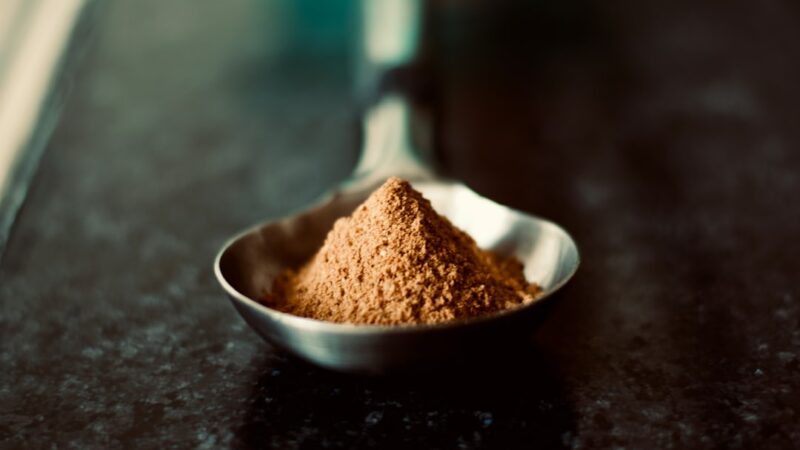“What Does Collagen Do for Your Body? The Answers Might Surprise You”

Collagen is a protein that plays a crucial role in the human body. It is the most abundant protein in our bodies and is found in our skin, bones, muscles, tendons, and ligaments. Collagen provides structure and support to our tissues and organs, making it essential for overall health and well-being. In this blog post, we will explore the basics of collagen, its various roles in the body, how collagen production changes with age, and the link between collagen and bone health, skin health, gut health, and exercise performance. We will also discuss collagen supplements and natural ways to boost collagen production.
Table of Contents
Key Takeaways
- Collagen is a protein that provides structure and support to the body’s tissues.
- Collagen plays a role in skin health, joint function, bone health, and gut health.
- Collagen production decreases with age, but can be boosted through diet and lifestyle changes.
- Collagen supplements may have benefits for skin health and joint function, but come with potential risks and side effects.
- Collagen can aid in exercise recovery and injury prevention.
The Basics of Collagen: What It Is and How It Works in the Body
Collagen is a fibrous protein that is made up of amino acids. It is produced by cells called fibroblasts and is found throughout the body. There are different types of collagen, with each type having its own unique structure and function. The most common types of collagen are type I, type II, and type
Type I collagen is the most abundant type of collagen in the body and is found in our skin, bones, tendons, and ligaments. It provides strength and support to these tissues and helps maintain their structure.
Type II collagen is found in our cartilage, which cushions our joints and allows for smooth movement. It helps maintain the integrity of our joints and prevents them from rubbing against each other.
Type III collagen is found in our skin, blood vessels, and organs. It provides support to these tissues and helps maintain their elasticity.
Collagen works in the body by forming a network of fibers that provide structure to our tissues. It acts as a scaffold for cells to attach to and helps maintain the integrity of our tissues. Collagen also plays a role in wound healing by helping to form new blood vessels and promoting the growth of new tissue.
The Many Roles of Collagen in the Body, from Skin Health to Joint Function
Collagen plays a crucial role in various aspects of our health, including skin health and joint function. Let’s explore these roles in more detail.
Collagen’s role in skin health: Collagen is responsible for the strength and elasticity of our skin. It helps maintain the firmness and smoothness of our skin, preventing wrinkles and sagging. As we age, our collagen production decreases, leading to the formation of wrinkles and fine lines. By maintaining healthy collagen levels, we can promote youthful-looking skin.
Collagen’s role in joint function: Collagen is a major component of our cartilage, which cushions our joints and allows for smooth movement. It helps maintain the integrity of our joints and prevents them from rubbing against each other. Without sufficient collagen, our joints can become stiff and painful, leading to conditions such as osteoarthritis.
Other roles of collagen in the body: In addition to its roles in skin health and joint function, collagen also plays a role in other aspects of our health. It helps strengthen our bones and teeth, promotes healthy hair and nails, supports muscle growth and repair, and aids in digestion by promoting the health of our gut lining.
How Collagen Production Changes as You Age, and What You Can Do About It
Collagen production naturally decreases as we age. Starting in our mid-20s, our bodies produce less collagen each year. By the time we reach our 40s, collagen production has significantly declined, leading to visible signs of aging such as wrinkles and sagging skin.
Several factors can affect collagen production, including sun exposure, smoking, poor diet, stress, and hormonal changes. Sun exposure can damage collagen fibers and accelerate their breakdown. Smoking reduces blood flow to the skin, depriving it of essential nutrients needed for collagen production. A poor diet lacking in essential nutrients can also hinder collagen production. Stress and hormonal changes can disrupt collagen synthesis and lead to collagen degradation.
Fortunately, there are ways to boost collagen production and slow down the aging process. One of the most effective ways is to provide your body with the necessary building blocks for collagen synthesis. This includes consuming foods rich in amino acids, vitamin C, and antioxidants. Amino acids are the building blocks of proteins, including collagen. Vitamin C is essential for collagen synthesis, and antioxidants help protect collagen from damage.
The Link Between Collagen and Bone Health: What You Need to Know

Collagen plays a crucial role in maintaining bone health. It is a major component of our bones, providing strength and flexibility. Collagen fibers form a scaffold for minerals such as calcium and phosphorus to attach to, making our bones strong and resilient.
Collagen also affects bone density, which is a measure of the amount of minerals in our bones. Low bone density can lead to conditions such as osteoporosis, where our bones become weak and brittle. By maintaining healthy collagen levels, we can support bone health and reduce the risk of osteoporosis.
Collagen and Skin Health: Does It Really Help with Wrinkles and Fine Lines?
Collagen has long been touted as a miracle ingredient for reducing wrinkles and fine lines. But does it really work? The answer is yes, but with some caveats.
Collagen is a key component of our skin’s structure, providing strength and elasticity. As we age, our collagen production decreases, leading to the formation of wrinkles and sagging skin. By supplementing with collagen or using skincare products that contain collagen, we can help replenish our skin’s collagen levels and improve its appearance.
Several studies have shown that collagen supplementation can improve skin elasticity, hydration, and overall appearance. One study found that women who took a collagen supplement for eight weeks experienced a significant reduction in wrinkles and an improvement in skin elasticity compared to those who took a placebo.
In addition to reducing wrinkles and fine lines, collagen has other benefits for skin health. It can help improve skin hydration, promote wound healing, and reduce the appearance of scars and stretch marks.
The Connection Between Collagen and Gut Health: How It Affects Digestion and More
Collagen plays a crucial role in gut health. It is a major component of our gut lining, which acts as a barrier between our digestive system and the rest of our body. Collagen helps maintain the integrity of our gut lining, preventing harmful substances from leaking into our bloodstream.
When our gut lining becomes compromised, it can lead to a condition called leaky gut syndrome. This condition allows toxins, bacteria, and undigested food particles to enter our bloodstream, triggering an immune response and causing inflammation.
By maintaining healthy collagen levels, we can support gut health and reduce the risk of leaky gut syndrome. Collagen supplementation has been shown to improve gut barrier function and reduce inflammation in the gut.
Collagen also plays a role in digestion by promoting the production of stomach acid and supporting the health of our digestive organs. It can help soothe the lining of the digestive tract and reduce symptoms of conditions such as irritable bowel syndrome (IBS) and inflammatory bowel disease (IBD).
Collagen Supplements: Do They Work, and Are They Worth the Investment?
Collagen supplements have gained popularity in recent years as a way to boost collagen levels and improve various aspects of health. But do they really work, and are they worth the investment?
There is evidence to suggest that collagen supplements can be effective in improving skin health, joint function, and bone density. Several studies have shown that collagen supplementation can increase collagen levels in the skin, leading to improvements in skin elasticity, hydration, and overall appearance.
Collagen supplements have also been shown to improve joint function and reduce symptoms of conditions such as osteoarthritis. One study found that collagen supplementation reduced joint pain and improved physical function in individuals with knee osteoarthritis.
When choosing a collagen supplement, it is important to consider factors such as the type of collagen used, the dosage, and the quality of the product. Type I collagen is the most common type used in supplements and is beneficial for skin health and joint function. Type II collagen is specifically targeted for joint health. Look for supplements that contain hydrolyzed collagen, which is broken down into smaller peptides for better absorption.
How to Boost Your Body’s Natural Collagen Production with Diet, Lifestyle, and More
In addition to collagen supplements, there are several natural ways to boost your body’s collagen production. Here are some tips:
1. Eat a balanced diet: Consuming foods rich in amino acids, vitamin C, and antioxidants can provide your body with the necessary building blocks for collagen synthesis. Foods such as lean meats, fish, eggs, beans, nuts, fruits, and vegetables are all good sources of these nutrients.
2. Protect your skin from sun damage: Sun exposure can damage collagen fibers and accelerate their breakdown. Protect your skin by wearing sunscreen, seeking shade, and wearing protective clothing.
3. Quit smoking: Smoking reduces blood flow to the skin, depriving it of essential nutrients needed for collagen production. Quitting smoking can help improve collagen levels and overall skin health.
4. Manage stress: Chronic stress can disrupt collagen synthesis and lead to collagen degradation. Practice stress management techniques such as meditation, yoga, or deep breathing exercises to reduce stress levels.
5. Get enough sleep: Lack of sleep can affect collagen production and lead to premature aging of the skin. Aim for 7-9 hours of quality sleep each night to support collagen synthesis and overall health.
6. Exercise regularly: Regular exercise promotes blood flow and stimulates collagen production. Incorporate both cardiovascular exercise and strength training into your routine for optimal collagen synthesis.
The Risks and Side Effects of Collagen Supplements: What You Need to Know
While collagen supplements are generally considered safe for most people, there are some potential risks and side effects to be aware of.
Some individuals may experience digestive symptoms such as bloating, diarrhea, or constipation when taking collagen supplements. These symptoms are usually mild and temporary, but if they persist, it is recommended to stop taking the supplement.
Collagen supplements are derived from animal sources such as bovine or marine collagen. If you have allergies or sensitivities to these sources, it is important to choose a collagen supplement that is suitable for your dietary needs.
It is also important to note that collagen supplements are not regulated by the Food and Drug Administration (FDA) in the same way as prescription drugs. This means that the quality and safety of collagen supplements can vary. Look for reputable brands that undergo third-party testing to ensure quality and purity.
If you have any underlying health conditions or are taking medications, it is always best to consult with your healthcare provider before starting any new supplement regimen.
Collagen and Exercise: How It Can Help with Recovery, Injury Prevention, and More
Collagen plays a crucial role in exercise performance and recovery. Here’s how it can help:
Collagen’s role in exercise recovery: Intense exercise can cause damage to our muscles and connective tissues. Collagen helps repair this damage by promoting the growth of new tissue and reducing inflammation. By maintaining healthy collagen levels, we can support faster recovery and reduce muscle soreness after exercise.
How collagen can help prevent injuries: Collagen provides strength and support to our tendons, ligaments, and joints. By maintaining healthy collagen levels, we can improve the integrity of these tissues and reduce the risk of injuries such as sprains, strains, and tendonitis.
Other benefits of collagen for exercise performance: Collagen supplementation has been shown to improve muscle mass and strength, enhance bone density, and support overall exercise performance. It can also help improve joint function and reduce symptoms of conditions such as osteoarthritis, allowing for better mobility and range of motion during exercise.
Collagen is a vital protein that plays numerous roles in the body, from supporting skin health to promoting joint function and gut health. As we age, collagen production naturally decreases, leading to visible signs of aging and increased risk of certain health conditions. However, there are ways to boost collagen production and support overall health.
Collagen supplements can be effective in improving various aspects of health, but it is important to choose high-quality products and consider potential risks and side effects. Additionally, there are natural ways to boost collagen production through diet, lifestyle changes, and exercise.
By maintaining healthy collagen levels, we can support our overall well-being and promote a youthful appearance. Whether through supplements or natural methods, collagen is an essential component of a healthy lifestyle.
If you’re interested in learning more about the health benefits of natural remedies, you might want to check out this informative article on turmeric and curcumin. Turmeric has gained popularity for its potential anti-inflammatory properties and its ability to support overall health. Discover how this vibrant spice can be incorporated into your daily routine to promote wellness and vitality. Click here to read more about the wonders of turmeric.
FAQs
What is collagen?
Collagen is a protein that is found in the connective tissues of animals, including humans. It is the most abundant protein in the body and is responsible for providing structure and support to various tissues, including skin, bones, tendons, and cartilage.
What are the benefits of collagen?
Collagen has several benefits for the body, including improving skin health, reducing joint pain and stiffness, promoting muscle mass, and supporting gut health.
How does collagen improve skin health?
Collagen helps to improve skin health by increasing skin elasticity, reducing the appearance of wrinkles and fine lines, and promoting skin hydration.
How does collagen reduce joint pain and stiffness?
Collagen helps to reduce joint pain and stiffness by providing support to the joints and promoting the production of cartilage, which cushions the joints and reduces friction.
How does collagen promote muscle mass?
Collagen promotes muscle mass by providing the body with the necessary amino acids to build and repair muscle tissue.
How does collagen support gut health?
Collagen supports gut health by promoting the growth of beneficial gut bacteria and reducing inflammation in the gut lining.
What are some food sources of collagen?
Some food sources of collagen include bone broth, chicken, fish, and egg whites.
Can collagen supplements be beneficial?
Yes, collagen supplements can be beneficial for improving skin health, reducing joint pain and stiffness, promoting muscle mass, and supporting gut health. However, it is important to choose a high-quality supplement and to speak with a healthcare provider before starting any new supplement regimen.








